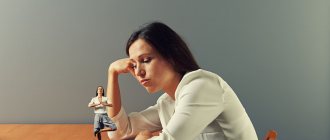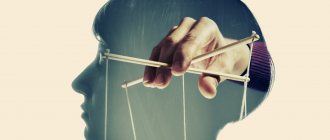Hello friends!
We often encounter injustice or witness situations that force us to think about how to make the world a better place. At the same time, most of us underestimate our own capabilities, believing that we do not have enough resources to have a noticeable impact on the surrounding reality. But each of us can make a contribution by doing small acts of kindness. Today we will look at several simple ways, using which, every person can make the world at least a little better. Let's begin.
How evolution taught us to be altruistic
Global warming, economic inequality - modern reality is full of a variety of problems that encourage people to change the world.
In the struggle for a better future, many sacrifice their time and nerves, and sometimes risk their jobs, good relationships or personal safety. Something forces people to take on global problems that do not directly affect them. This mysterious force is the ancient evolutionary mechanisms that force us to care about the survival of the group. Only at first glance it seems that altruistic self-sacrifice has nothing in common with selfish self-preservation. From a biological point of view, fighting for a common cause helps the entire species survive. This is what determines the behavior of people as social animals.
Altruism increases risks for an individual, but makes the entire system more stable. Scientists briefly describe the paradox of such an adaptive strategy: “Egoism is more beneficial than altruism within the group. But altruistic groups defeat egoistic groups.” Therefore, people often deal with other people's problems to the detriment of personal interests.
Altruism turns out to be a beneficial personal behavior strategy from a psychological point of view. By showing concern for others, we increase our own status and can count on the support of others if we ourselves need help. Therefore, firefighters enter burning houses, and scientists present new developments.
The paradox of altruism is that by caring for others, we improve our own mental and emotional state. Sociologists have found that the feeling of happiness is directly related to helping other people. Some researchers report effects such as reduced stress, lower blood pressure, and even increased life expectancy. People who devote a lot of time to volunteering are less likely to suffer from loneliness and experience almost no feeling of alienation. As a result, altruistic behavior helps us find purpose and meaning in our lives.
Find out what you are talented at
Image: DimaBerlin/Shutterstock Even if it seems like you don't have any special skills, you probably don't.
It can be quite difficult to objectively assess your merits, but almost every person has creative abilities. It is only important to find them and develop them correctly. Think about what activities give you pleasure and lift your spirits. Do not take into account other people’s opinions and discard stereotypes that certain activities are not suitable for your age or status. Listen only to your inner voice. If you feel that some creative endeavors are easy and bring joy, it is likely that talent is the source of positive emotions.
You may not be able to find the answer quickly, but don't despair. Think about what successes you are often praised or singled out for by others. Pay special attention to phrases like “Thanks to you, everything worked out!” and “You’re doing great!” — such comments indicate the positive results of your work. People often think that their own achievements in a certain area are insignificant or ridiculous, but in fact they often reflect a person's unique abilities.
Finally, remember what educators or professionals in a particular field advised you to focus on. The opinion of experienced mentors is very valuable, because they can immediately spot talent.
If you want to change the world, start with yourself
Humanity has always wanted to build a safer and more productive society, and new generations have been at the forefront of these changes. It's not just about youthful maximalism. Research shows that young people are generally more likely to care about how future generations will live than older people.
As we get older, we often become less involved in social life. We have more routine tasks, we focus on personal achievements and sometimes consciously distance ourselves from global problems. This effect is described by disengagement theory, which suggests that the gap between individuals steadily increases with age.
Despite this, many changes in the world are initiated by individuals of all ages. As soon as one person begins to actively invest time and effort into solving the problem, more and more people will get involved in the work. Altruism is a contagious state, and even small steps can change the world, at least by inspiring other people.
It's important to notice the impact we have on problems, even those that seem small. Underestimating your own efforts is a classic decision-making mistake. Psychologists advise considering the sum of all the small steps we take, and also understanding that we are not alone in our aspirations. Therefore, any, even the smallest action has meaning. Positive changes tend to grow exponentially.
Use recycling and waste collection points
Finding the nearest ones is quite easy; you can use a special electronic map Recyclemap, which is relevant for many large cities in Russia, or a Google search.
Separate collection of waste paper, plastic and glass containers is not difficult. For example, plastic bottles can be stored quite compactly simply by folding them correctly.
In addition, they still pay some money for delivering recyclable materials to collection points. You can count on about 12-15 rubles per 1 kg of plastic and about 3 rubles per 1 kg of waste paper.
As for collecting, for example, batteries, this can be approached collectively. For example, put a special container in your entrance with a call to your neighbors. In this way, you can optimize your efforts and then organize convenient delivery of the collected batteries to the collection point (here you can always see up-to-date information on where to take used batteries - in the list of “Eldorado”, Castorama and others).
Saransk is one of the few cities in Russia where almost every resident can recycle their garbage.
Science determines the future of humanity
In the 21st century, changing the world has become even easier due to the increasing role of information and knowledge. Every day more and more professions appear that change our understanding of the future: alternative energy specialist, virtual reality or robotics architect. Science has always been the area where the most daring ideas are born on how to change the world and help individuals and all of humanity. At the present stage, scientists can implement projects that recently seemed like something fantastic.
One of these innovative ideas, which can affect the lives of thousands or even millions of people, belongs to the NUST MISIS scientific group, which is developing new biomaterials for medical use. Scientists are creating bone and cartilage implants and customized prosthetics based on biomimetic materials, that is, those that imitate elements of living nature. Researchers are developing cell-engineered structures that combine conditionally living and non-living things.
Fedor Senatov, head of the Biomaterials Science department, talks about his successful experience of cooperation with a large veterinary clinic:
“A big story was the operation to replace a large section of bone in a cat with acute sarcoma - he had to have his limb amputated. We were simulating bone, and this implant was populated with the patient’s own cells before the operation: they took a bone marrow sample, isolated cells from there and successfully colonized them into the implant. This was the first cell-engineered cat in Russia. We managed to extend his active life by one year.”
Now developments in this area have reached the final research stage. After the necessary approvals and safety tests, the technology can be used in human clinics. The researcher believes this could change the future of medicine:
“We are at a stage when we have already done a lot of pure science, written, told the world, and now we need to do something applicable in practice. Because we see how this could potentially work. We would like to make customized prosthetic technology more accessible.
Our developments are based on materials that could potentially be quite cheap, but at the same time have good characteristics - this is something that can be used as implants in medicine. We would like to bridge the gap between pure science and practice and take this small step so that all the developments that now help animals become applicable to people. Our global goal is to expand the potential market and make it inexpensive, so that patients can count on a good prosthesis not only based on quotas. It should be affordable for everyone.”
We now live on average twice as long as our ancestors did in the 1900s, and our quality of life has improved dramatically. This is largely due to science. The pursuit of knowledge not only changes our ideas about the world, but also creates a new reality. But many people are afraid of such rapid changes, so not all developments are easily implemented.
Pacific Garbage Patch
Due to the accumulation of garbage, air pollution occurs: nitrogen and carbon oxides, ammonia, phenol, hydrogen sulfide and many other harmful substances are released. The soil and groundwater, vegetation suffers, the number of rodents, birds and insects that carry various infections increases.
On a global scale, the oceans are suffering - many have probably heard about the famous Pacific Garbage Patch, which is larger than the state of Texas. According to various estimates, the area of this “garbage continent” ranges from 700 thousand to 1.5 million km²).
You can visualize the map of waste in the world's oceans using an interactive map that was recently created by a group of graphic designers from New Zealand.
The density of garbage accumulations is marked on it with white dots (each dot = 20 kg of plastic waste!) By the way, about 80% of the garbage enters the ocean from the shore and only then is carried by ocean currents.
Scientists are changing the world here and now
Previously, entire generations of scientists could spend years and even centuries researching to prepare the ground for a single important discovery. In modern science, this situation has only partially been preserved. The world has accelerated so much that there is now a high probability of seeing the result of a scientist’s work put into practice within a few years after the start of research.
One of these rapidly developing areas is the creation of new materials that are being implemented everywhere - from household appliances to the space industry. The NUST MISIS scientific group, which deals with additive technologies, creates solutions for nuclear energy, aircraft and automotive industries. Perhaps in the near future these studies will lead to the creation of “smart” materials that will change their properties.
Program manager Vladimir Cheverikin explains why and how he and his colleagues are changing the future:
“The world of materials and technologies for their production are changing rapidly, the use of materials opens up new horizons, therefore, we are making the world a better place. Changing the world, in my opinion, means doing today what will be relevant and necessary in 10–20 years. The technologies we are currently working on in the field of creating materials have no analogues in the world.
Since childhood, I have always been interested in observing the processes taking place around me and looking for an answer to the question: “Why exactly is this happening?” They called me “little Why” because until I received an answer to the questions posed, I did not leave the interlocutor.
Of course, you cannot do science without interest. When your hobby and work are connected, you can achieve great results. When working on projects, we solve various problems, ranging from modeling materials and technologies to pilot processes in production, which constantly forces us to look for the answer to the same question: “Why exactly is this happening?”
Science constantly poses cutting-edge tasks for scientists. Most breakthrough discoveries happen when radical new ideas are superimposed on a base of proven knowledge and experience. Therefore, it is often young scientists who turn out to be the people who change the world. This is especially true for new areas of research, where implementation can be achieved even faster.
Read the composition of household chemicals and cosmetics
Thus, quite a lot of manufacturers (including domestic ones) are starting to produce eco-friendly lines of detergents and cleaning products for the home that do not contain phosphates, chlorine and other substances harmful to the environment.
The packaging of such products usually states o or “biodegradable”. In addition, some cleaning products can be replaced quite well by ordinary soda, vinegar and mustard powder.
In cosmetics, surfactants (surfactants) in shampoos and shower gels, for example, SLS (Sodium Lauryl Sulfate) and SLES (sodium laureth sulfate), can cause environmental damage. Together with wastewater, they enter water bodies and have an adverse effect. Ultimately, these substances affect the quality of drinking water.
In addition, these substances, with constant use, contribute to the development of dry skin and hair and a decrease in the normal lipid barrier.
Now there are several well-known brands that have set themselves the goal of making household chemicals as safe as possible for health and the environment. We mentioned them in the text “How harmful are household chemicals?”
Everyone can start change with science
Many young people eager to change the world go into politics, activism or, for example, journalism. But scientists remain the cardinals of global change. An academic career can be a truly important step for those who want to benefit humanity. In this area, the professional environment and quality of education are very important, so you should carefully consider the choice of educational institution and the direction in which you want to develop.
If you have interest and knowledge in the field of natural sciences, you should pay attention to the master's and doctoral programs of NUST MISIS. They provide the opportunity to work on specific scientific projects from the very beginning of their studies. At the same time, the scientific and educational track is formed individually for each student. As part of the program, you can develop and implement your ideas in laboratories with advanced equipment under the guidance of leading scientists.
NUST MISIS offers integrated PhD programs related to new materials, strategic management and additive manufacturing technologies. Future students will be able to directly improve the lives of people who need transplantation treatment, create the latest polymers for the space industry and home construction, and find real-life applications for quantum technologies.
Examples of good deeds
What actions help make the world a kinder and better place?
- Give movie tickets to a poor large family.
- Please your mother, wife or sister with a bouquet of roses.
- Let a person pass in line.
- Print out an ad on a piece of paper with the words “Take it with you,” and on the tear-off parts write the words “Joy,” “Courage,” “Love,” “Success.” Maybe someone just needs such a small “dose” of inspiration. In a difficult life situation, even this small drop of goodness can become decisive for a person.
- Buy new combs, washcloths, toothpaste and soap, and donate it to the volunteers of the homeless fund.
- Praise the new perfume of a colleague or neighbor.
- Buy a couple of packages of diapers and donate them to the orphanage.
A practical guide on how to change the world
To achieve visible changes in the world, you need to be patient. Psychologists and coaches will tell you how best to approach work that should influence the future of humanity. We have collected some of the most important tips on how to change the world for the better and not burn out yourself.
- Do something. The first steps on the path of change are the most difficult, but you almost always have to start small.
- Believe that you are the one who can change something - even if you don’t yet have a clear plan and answers to all the questions. They will come in time.
- Your motivation must be bigger than yourself. If your business helps other people, you are unlikely to want to quit halfway. And don’t forget to listen to those for whom you are doing all this.
- Don't be afraid to make mistakes. Failures should not stop us; they help us see weaknesses and do our work even more efficiently. Be persistent.
- Don't forget about yourself. Sometimes it is important to put everything aside and allow yourself to rest so as not to burn out over the long haul. Changing the world is still a marathon, not a sprint.
Give things a second life
If you are ready to give away your things for free, doing a good deed is as easy as shelling pears. For example, donate tired or out-of-fashion clothes to the Red Cross organization (its representatives work in all countries), or contact charitable organizations.
There are also online services like darudar.org, with which you can give away almost anything (not just wardrobe items) in any way convenient for you. Unneeded books can be donated to bookcrossing or donated to the local library.
If clothes or other valuable but no longer needed items are in more or less good condition, you can use the services of consignment stores or online sales platforms.
As a rule, clothes that are collected by special organizations are then distributed to the poor after presenting a special certificate.
Create your own corner of nature
If you want to go beyond the previous slide (planting a garden), you might consider building a shelter for birds, bees, or other animals. This will involve building birdhouses of the appropriate size, hanging them at the right height, and stocking the right food. If you want to make a home for bees, you will need to invest in a fair amount of equipment.
Before starting construction, familiarize yourself with the legislation; Some laws restrict certain types of animals from being allowed on your property.
8.Join a wildlife organization
Different wildlife organizations have different goals:
- protection of natural habitats;
- conservation of specific species;
- creation of appropriate environmental policy by local governments.
Choose an organization that deals with wildlife issues that are close to your heart. Most of these organizations are interested in volunteers (to find new volunteers, run an event, interact with government agencies, etc.), so you will always have something to do.
Try to use fewer resources when washing dishes
Prepare two basins: one with soapy water, the other with clean water. First, clean the dishes from large stains with a damp sponge - this way you won’t be distracted by debris. Then rinse in soapy water, then rinse in hot, clean liquid. Change the water in the basins in a timely manner to achieve the desired effect from washing dishes.
10 rules for improving the environment on Earth
- Try fluorescent energy-saving lamps, as well as LED bulbs and fixtures. They are in no way inferior to ordinary ones in terms of illumination level.
- Try to turn off all electronic devices when you go to bed. This will not only save you over 1000 kW of energy per month, but will also clear background wave pollution and you will sleep much better.
- Use both sides of the paper, especially when printing. Make sure your printer supports duplex printing.
- It's best not to turn on the oven prematurely. Also, in order not to lose heat from heating, assess the degree of readiness of the dish visually. This action also reduces energy costs. The same method works with the refrigerator.
- Recycling glass items reduces air pollution by 20% and water pollution by 50%.
- It will be more beneficial for your child to use eco-friendly diapers made from recycled materials. This will not cause discomfort or allergies.
- Reduce your consumption of meat products by at least one meal per week. This self-restraint will help you feel better and help the world.
- Remember to check the lights before leaving a room or home. If you use an incandescent lamp, be sure to turn off the light every time. When using fluorescent lamps, it is better to turn off the lights when leaving for more than 20 minutes, as such lamps use more energy when turned on.
- It will be great for recycling waste paper and unnecessary things. You can also donate items to second-hand stores. This will save many trees on the planet.
- Buy water and food in plastic packaging as little as possible. Many of these containers are not recycled, and their decomposition period takes more than a thousand years. Try using a reusable bottle and lunchbox.
Clean ecological city
Focus on seasonal vegetables and fruits
Make it a rule to go to the nearest market on weekends, preferably on foot or by bike: this way you will reduce your carbon footprint. Choose vegetables and fruits there that are relevant for the current season. We guarantee that they will be cheaper and much tastier than products from the supermarket.









